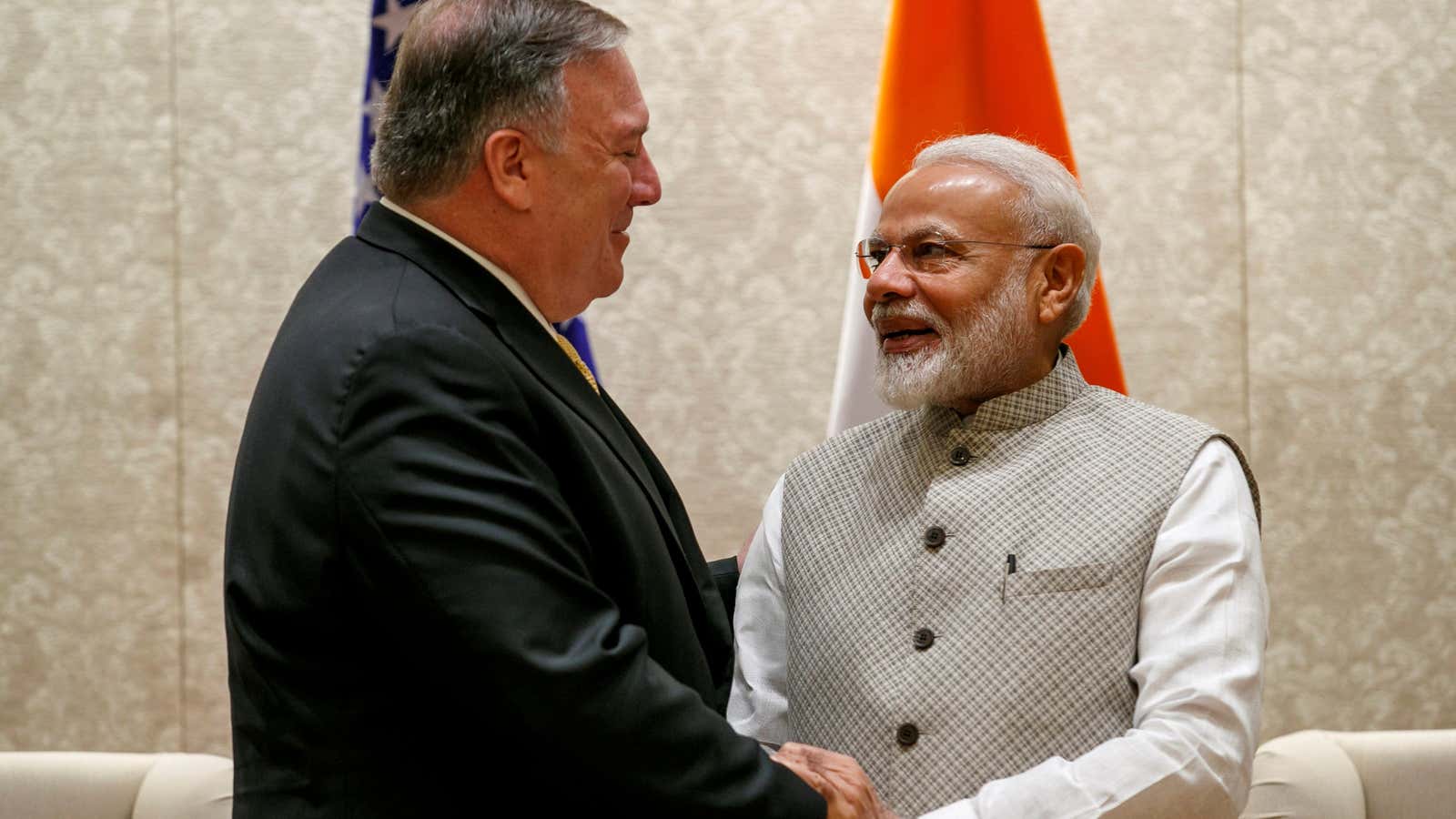Dear Indian H-1B aspirants, you can breathe easy.
Earlier this month, reports had suggested that the US was looking to curb the number of H-1B visa recipients from India as a tit-for-tat response for the country’s data localisation efforts, which were hurting North American tech giants like Visa and MasterCard.
However, during his ongoing three-day visit to the country, US secretary of state Mike Pompeo and the Indian government confirmed that there were no such plans, India Today reported today (June 26).
“The United States’ global leadership in technology has been made possible, in part, by its ability to attract the most talented workers from around the world,” India’s IT trade association Nasscom said in a statement on June 20, when the headlines about restricting H-1B visa allocations first floated. “If US policy makes it more difficult to hire advanced tech workers, it will only weaken the US companies that depend on them to help fill their skills gaps, put jobs at risk, creating pressure to send technology services abroad.”
Filling the skills gap
The US bureau of labor statistics predicts that in 2020 there will be 1.4 million more software development jobs in the country than applicants who can fill them.
By 2030, the US could lose out on $162 billion-worth (Rs 11 lakh crore) of revenues annually in the tech sector alone unless it finds more high-tech workers, a 2018 study by management consulting firm Korn Ferry found. Meanwhile, India could become the next tech leader since the country is poised to have a surplus of over a million high-skilled tech workers by 2030.
Already, a slew of unfavourable tweaks to the work-visa programme by the Donald Trump administration has led to Indian IT giants like Infosys and Wipro pulling back on exporting talent. Still, Indian nationals accounted for majority of the visas—over three-quarters—in the last lottery. And it’s American consulting and tech behemoths such as Deloitte and IBM which account for most of the H-1B population.
